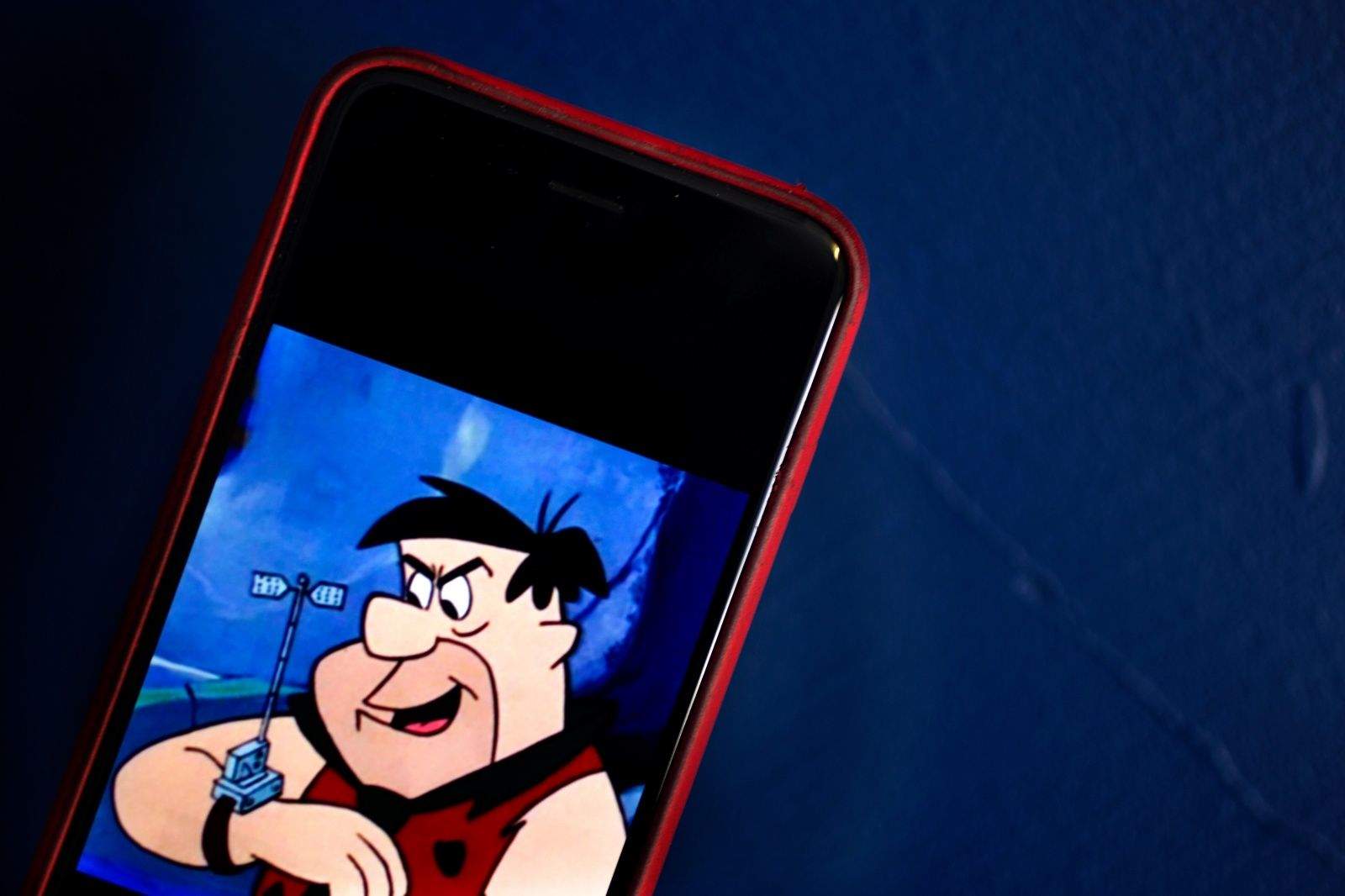Apple won’t be at the mammoth International Consumer Electronics Show in Las Vegas next week, but once again, it’s setting the agenda from afar.
 While Korean electronics giants like Samsung will dominate the show floor, Apple is laying the future path for the entire tech industry.
While Korean electronics giants like Samsung will dominate the show floor, Apple is laying the future path for the entire tech industry.
In the coming year, the tech industry’s big battlegrounds will be your body, your home and your car. At CES, thousands of companies will showing off new and prototype products to do battle in these arenas. But Apple is the company to beat. With the upcoming Apple Watch, in addition to HealthKit, HomeKit and CarPlay, Apple is setting the agenda for the entire tech industry, and it’s not even there.
Since its inception in the late ‘60s, Apple has never officially attended CES. It matters not. For more than a decade now, Apple’s announcements at Macworld, which used to run concurrently with CES, tended to overshadow the bigger show in Nevada. No one remembers CES 2007; but Steve Jobs’ iPhone unveil at Macworld is one of the most important presentations in tech history.
CES is a giant, sprawling show that years ago outgrew the giant, sprawling Las Vegas Convention Center and spread to several other venues. 2015 will be no different, with the 2 million plus square feet of exhibits, more than 20,000 products and 160,000 attendees spread all over town. CES is where the tech industry shows off new products and prototypes for the upcoming year. It’s Cannes for nerds, running from January 6 to 9.
With or without Apple, there will be plenty of cool stuff; from amazing 8K TVs to BMW’s self-parking car that can handle multi-story carparks.
TV Nation
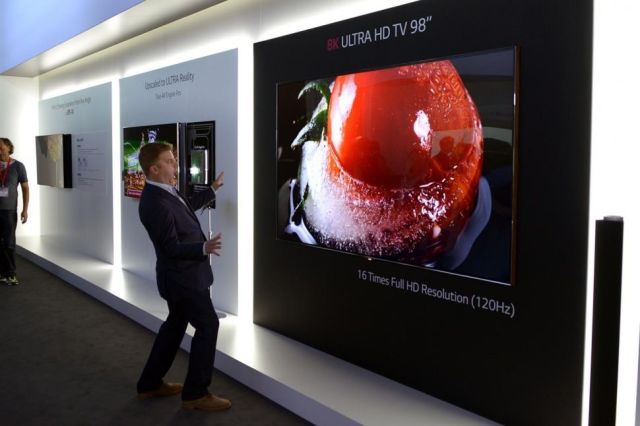
For the umpteenth year in a row, the most visible technology at CES 2015 will be big and bigger TVs.
LG’s next-generation of TV tech is a line of 4K UHD TVs with “quantum dot” technology that improve color and picture quality. Quantum dots are a film of nano-sized crystals that emit “extraordinarily vivid” colors when laid in front of the LCD backlight.
LG will also be showing off a prototype TV with 8K resolution, according to a CNET report. With 33.2 million pixels (an insane 7,680 x 4,320 resolution), the beast boasts twice the resolution of today’s 4K displays. However, it’s small by comparison to today’s biggest TVs (only 55-inches) and there’s no video hardware capable of supporting it. It’s years away from market, but it shows the direction monitors are going: ultra crazy sharp.
There will be a slew of new 4K TVs, including more affordable (read sub-$1,000 sets) from the likes of LG, Samsung, Sharp, Toshiba and boatloads of others.
On the content front, media giants like Time Warner, Dish Networks and NBC are rumored to be announcing new 4K content streams at the show, which is more than welcome if you have an UHD set that’s upscaling everything.
Also welcome is Philips entrance into the OLED club. OLED is a beautiful but pricey TV technology that will only get cheaper the more manufacturers commit to it.
Philips is likely to unveil its first OLED TV, joining LG and Samsung.
Same ‘ol, same ‘ol Samsung

Of the monster booths, Samsung is likely to have one of the largest. Samsung will have plenty to show off, including tablets, wearables, VR headsets and cameras. Of course, there will also be tons of big beautiful TVs and sparkling new washing machines.
Samsung may preview its latest smartphone to rival the latest iPhone 6s, the Galaxy S6, but it’s unlikely. There will definitely be the latest line of TVs, including more affordable 4K sets. Samsung will have a new Ultrabook laptop (a MacBook Air clone), and maybe an update of the Galaxy Pro tablets, which go up against Apple’s upcoming/rumored 12-inch iPad Pro.
Samsung also has a big presence on the keynote schedule. Samsung’s President and CEO BK Yoon will lay out Samsung’s vision for the Internet of Things, when everything will be connected to a smartphone. Yoon’s talk on “how it will transform our lives,” will likely detail the interim step of a platform for connecting all the different smart devices.
This of course, sounds very much like Apple’s Home Kit, Apple’ smart home SDK for connecting smart devices to iOS. Home Kit was previewed earlier this year at WWDC and rolled out in iOS 8. Shortly after WWDC, Samsung acquired SmartThings, a smart home platform, and Yoon’s talk will likely center on the SmartThings technology that was acquired.
Home sweet smarthome
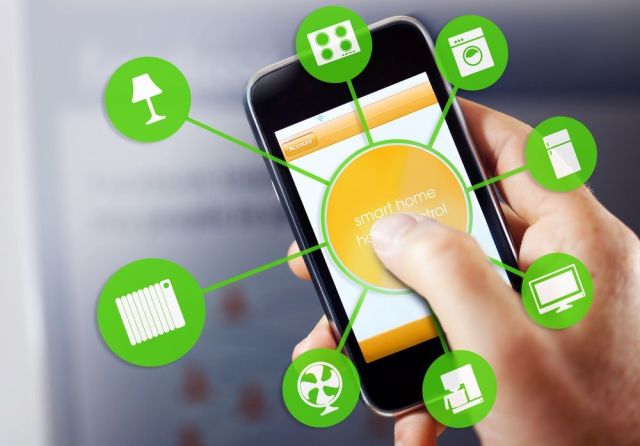
Photo: Texas Instruments
Apple and Samsung aren’t alone. The smart, connected home is going to be a major trend at CES this year. There are a couple of factors at play. Firstly, sensors are becoming ubiquitous in everything from crockpots to sprinklers, thanks largely to advancements in Bluetooth and iBeacon tech. Secondly, manufacturers are finally able to start making devices that work with HomeKit, Apple’s SDK for tying together home automation with iOS 8.
iDevices, a company that specializes in Bluetooth-connected tech in appliances like grills and kitchen thermometers, is holding a keynote at CES where it’ll discuss its first HomeKit product. With Apple’s blessing, iDevices has also built its own SDK that’s designed to help other companies design for HomeKit without being part of Apple’s stringent and expensive MiFi program.
CES 2015 will be chock-full of newcomers in the smart home space, and while not all have committed to HomeKit specifically, pretty much all of them will work with iOS in some way. Home security systems, smart locks, smart thermostats, smart lights, and Bluetooth-enabled appliances will be in abundance at CES.
The big question is how all of the smart devices will communicate with each other and your phone. In addition to Apple and Samsung, Zigbee, Lowes’ Iris, Belkin’s WeMo, Alljoyn and the Google-owned Nest will all be jockeying to become your home’s platform.
Related: A recent Park Associates report showed that 37% of U.S. households plan to purchase one or more smart home devices next year.
Wearables: a “tsunami that is coming closer”
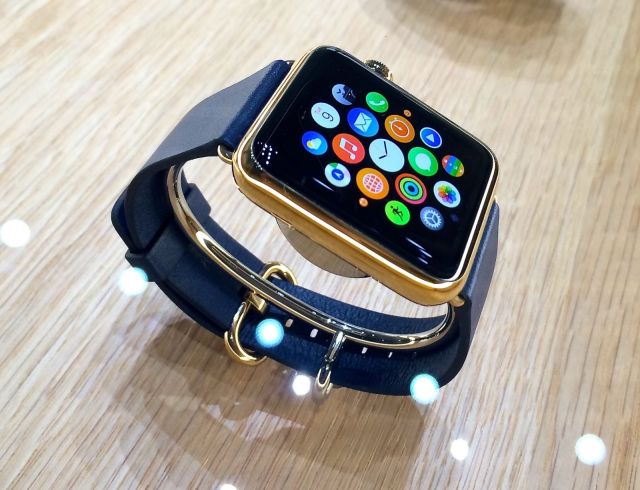
2015 is also going to see health sensors go everywhere — phones, wrists, ankles, clothes and helmets. Fitness wearables became trendy in 2014, but they’re still mostly novelty items. 2015 will be the year people start taking wearables more seriously, thanks to products like Microsoft’s surprisingly capable Band, and Apple Watch and HealthKit.
It’s not clear how many new HealthKit products will be unveiled at CES, but we expect to see wearables go to a new level with more devices providing continuous monitoring of vitals and other metrics. Heart-rate monitors another sensors are likely to be added to wearables from Fitbit, Jawbone and Garmin.
Apple Watch and HealthKit are going to change the doctor-patient relationship, and there’s going to be tons of other gadgets looking to get a cut of the market in new connected future where everything is recorded, analyzed, and shared.
The sports side of fitness tech will continue to be a major contributor too. Adidas is announcing that its elite training system for athletes is coming to consumers this year. Fashion companies will be getting in on the action by using wearables to improve your threads by promising better performance and conditioning. Companies like Athos and Hexoskin, which make attire for athletes, will be at the show with new wares.
HTC, the highly-regarded Taiwanese hardware maker that just partnered to make Google’s tablets, is expected to unveil its first wearable device, although its unclear what it is. HTC has made vague promises it’s much more than smart watch and won’t be a clone of the Apple Watch.
Last year, Pebble made a splash at CES with its classy Pebble Steel, a good looking, functional smart watch, but Apple Watch is likely going to eat its lunch. It’ll be interesting to see if Pebble can do anything at the show to keep itself in the smart watch race.
Likewise, Google’s many Android Wear partners — including Sony, Samsung, LG, Motorola, Lenovo and Asus — all have or will be revealing smart wearables with new functions.
Not to be left behind, traditional watchmakers are glancing nervously at Apple’s wrist. TAG Heuer general manager Guy Semon has likened the Apple Watch to a natural disaster for the traditional watch industry: “We cannot ignore this tsunami that is coming closer.”
TAG has announced it’ll be making it’s own smart watch, but it’s unlikely to show at CES: it’s more likely due at the end of 2015.
Casio and Fossil, which has joined Android Wear, will both be at CES, though its unclear what will be shown.
As for smart glasses, the face space is dominated right now by Google Glass, and despite its apparent imminent demise, other companies are looking to get into the smart glasses market. Sony will be showing off its SmartEyeglass, an “attachable” that clips on to your existing glasses, prescription or sunglasses.
Sony sees the OLED microdisplay in more specialist settings than Google Glass; being used to on the job or to improve sports performance. Check out the mind-bending demo if Sony’s Inception glasses, which can bend reality to convey all kinds of information to the wearer.
Car tech for your wheels
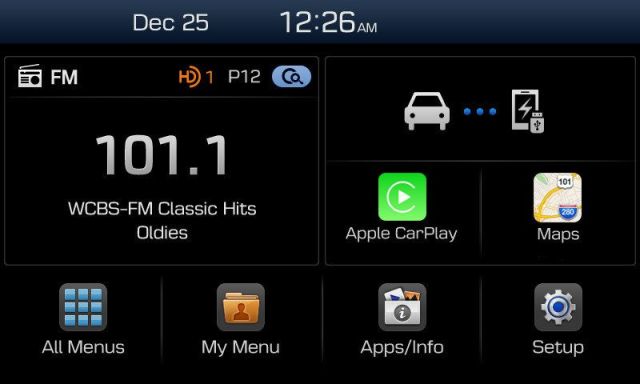
Cars at CES have been growing for years, and the battle is heating up for the center console.
Apple and Google are the leading contenders with CarPlay and Android Auto. Car makers are tending to opt for one or the other, but Hyundai is hedging its bets with an infotainment system that works with both Apple CarPlay and Android Auto. Its new Display Audio system, due to be showcased at CES, is almost completely dependent on a smartphone for everything from remote start to navigation, entertainment and even scheduled maintenance messages.
Autonomous driving will also be big at CES. There’ll be a major keynote from Mercedes Benz, which will focus on autonomous driving technology. Daimler chairman Dr. Dieter Zetsche will discuss how robe-driving will affect society and the environment.
BMW will showcase its Remote Valet Parking Assistant, an autonomous system that parks the car for you. Much more than a hands-off parallel parking, the system will allow the driver to exit the vehicle at the entrance to a multi-story garage. Running in a specially-fitted i3 electric car, it will drive off, find an empty space and park itself. The driver can later summon the car, and it will pick him or her up at the entrance — without any human intervention. It’s one of several new autonomous driving technologies that are making their way into vehicles from Volvo, Tesla and other. Move over. Let the robot drive.
